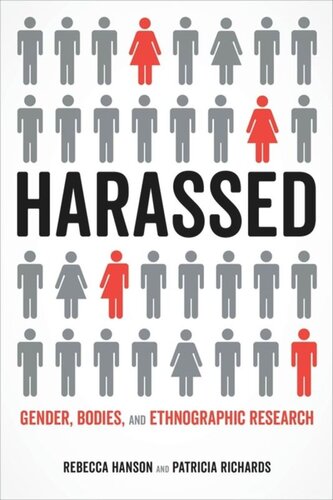

Most ebook files are in PDF format, so you can easily read them using various software such as Foxit Reader or directly on the Google Chrome browser.
Some ebook files are released by publishers in other formats such as .awz, .mobi, .epub, .fb2, etc. You may need to install specific software to read these formats on mobile/PC, such as Calibre.
Please read the tutorial at this link: https://ebookbell.com/faq
We offer FREE conversion to the popular formats you request; however, this may take some time. Therefore, right after payment, please email us, and we will try to provide the service as quickly as possible.
For some exceptional file formats or broken links (if any), please refrain from opening any disputes. Instead, email us first, and we will try to assist within a maximum of 6 hours.
EbookBell Team

4.7
36 reviewsResearchers frequently experience sexualized interactions, sexual objectification, and harassment as they conduct fieldwork. These experiences are often left out of ethnographers’ “tales from the field” and remain unaddressed within qualitative literature. Harassed argues that the androcentric, racist, and colonialist epistemological foundations of ethnographic methodology contribute to the silence surrounding sexual harassment and other forms of violence. Rebecca Hanson and Patricia Richards challenge readers to recognize how these attitudes put researchers at risk, further the solitude experienced by researchers, lead others to question the validity of their work, and, in turn, negatively impact the construction of ethnographic knowledge. To improve methodological training, data collection, and knowledge produced by all researchers, Harassed advocates for an embodied approach to ethnography that reflexively engages with the ways in which researchers’ bodies shape the knowledge they produce. By challenging these assumptions, the authors offer an opportunity for researchers, advisors, and educators to consider the multiple ways in which good ethnographic research can be conducted. Beyond challenging current methodological training and mentorship, Harassed opens discussions about sexual harassment and violence in the social sciences in general.